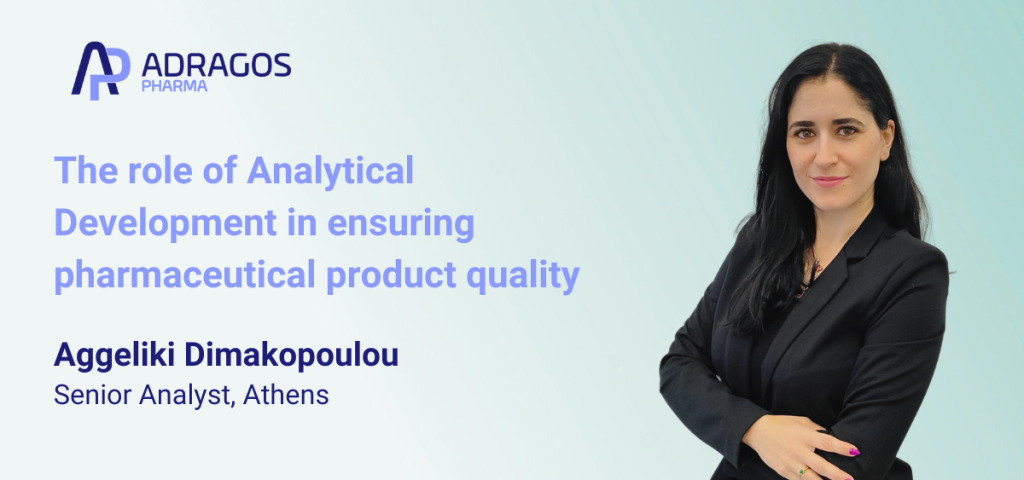Analytical testing is a critical function for any company involved in pharmaceutical manufacturing. The Analytical Department truly sits at the heart of what we do; bringing together science, quality, and compliance to make sure every product released is safe and effective. Our work supports every stage of the product journey, from research and development to manufacturing, quality assurance, and regulatory approval. By providing clear, reliable data, we help turn scientific ideas into trusted pharmaceutical products. In many ways, the Analytical Department is the backbone of the organization by connecting people, processes, and purpose, all with one goal in mind: protecting patients and improving lives.
Initially, I worked in the lab at Adragos executing a wide range of analytical tests myself, but now my role is to oversee and support all our laboratory analytical activities within the stability team.
My team works in parallel to the validation team in order to ensure integrity, regulatory compliance and operational efficiency throughout our operations. It’s a diverse and dynamic role from supervising analytical testing and ensuring data accuracy, to troubleshooting unexpected results. I am also responsible for reviewing and approving analytical results, methods, and protocols, as well as conducting investigations to identify the root cause of any out-of-specification (OOS) or atypical findings.
At our Athens site, we work across a wide variety of dosage forms, including oral solutions, suspensions, tablets, and capsules. Our goal is to confirm that every product is exactly what it claims to be, free from unexpected interactions between ingredients, and ultimately safe for patients. we have to verify its identity, purity, potency, and stability in full compliance with Good Manufacturing Practice (GMP) and all relevant regulatory standards.
One important task for me is confirming that we work in accordance with the standard operating procedures SOPs, for the analytical team. These need to be amended as and when regulatory guidelines are updated to ensure we remain in compliance. Adhering to our SOPs and GMP requirements guarantees that all our testing is robust, traceable, and scientifically defensible.
Much of our analytical work relies on chromatographic techniques, primarily either HPLC and UPLC, and UV analysis. But that’s not all. Other routine tests include dissolution tests on dosage forms, whether these are tablets, capsules or oral suspensions. If a medicine does not dissolve properly after the patient takes it, they will not get all the therapeutic benefit.
One of the most fascinating aspects of my work involves investigating those unexpected or anomalous results. It’s like detective work! Sometimes the problem is obvious: perhaps an equipment malfunction, a trapped air bubble, or a procedural deviation. Or maybe it’s an operator error – something as simple as not closing an oven door, can lead to a temperature drop, affecting retention times on a LC column, for example.
In the real world, problems will always arise but what matters most is how they are addressed. Careful and thorough investigation and root cause analysis are essential to continuous improvement and regulatory compliance. It contributes to solve those problems, and ensuring that patients will always be given medicines that meet all quality standards. In my daily routine, communication with the analysts is incredibly important, both from a leadership standpoint, but also from a mentoring perspective. I want to share my knowledge, and help them develop their own analytical intuition. My years in the lab gave me real insight, I understand the challenges they face and when I see one of the team puzzling over something, I just want to say, ‘Relax. Think about it, and I’m here to help you.’

